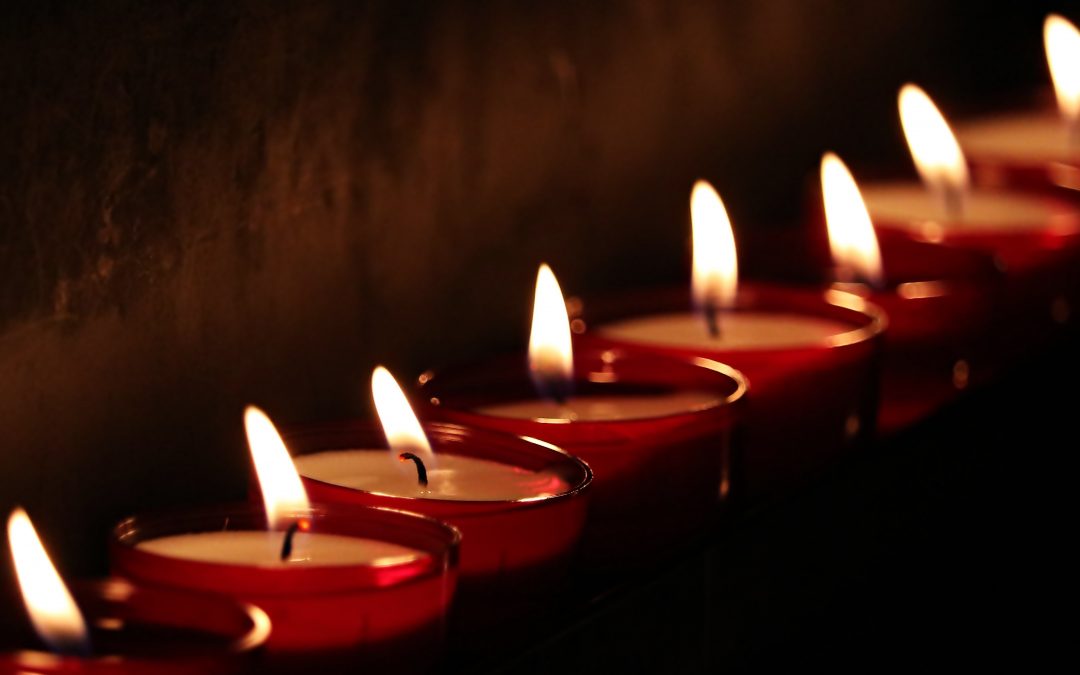The first two times we found out that I was pregnant, we quickly told friends and family our exciting news. When we found out we were pregnant with our third child, we held it close, a happy secret shared between the two of us. We felt like we were on the tail end of a season that was defined by sickness and fear, and the new life growing inside of me felt like hope.
Then, one sharp and snowy January morning, we lost that hope. I’ve never felt altogether comfortable with the words “miscarriage” and “loss,” as they seem to place some sort of burden on the mother. I still don’t like the vocabulary we have, but on that late January morning, those words felt exactly right. I felt like my body was slowly and physically losing the hope we so loved and cherished. I desperately wanted my body to hold onto that life that was so precious to us.
I didn’t know how to grieve the miscarriage, though I am not sure any of us ever really knows how to grieve. Like so, so many women, I have found a way through it over the last few years. Those first days I would wait until my kids were in bed, then sit with my husband or stand in the shower, and cry wild tears. I don’t cry like that for the baby we lost any more, but I do still cry sometimes. The tears surprise me now, and they are gentler, quieter tears. Like all deep grief, it hasn’t gone away completely, but it has softened.
Even now, it feels deeply vulnerable to share these words and memories. I think that it always will. But it also feels healthy and healing. I know that the story of my loss matters, and that it is one of many, many stories of miscarriage, still birth, and infant loss.
In 1988, President Reagan declared October National Pregnancy and Infant Loss Awareness Month. He said, “When a child loses his parent, they are called an orphan. When a spouse loses his or her partner, they are called a widow or widower. When parents lose their child, there isn’t a word to describe them. This month recognizes the loss so many parents experience across the United States and around the world.”
I love that we have national space set aside to recognize the loss and honor the lives of the babies we have lost. I believe that the cultural wound of infant loss is a deep one. About one in four women experience miscarriage or infant loss. We carry a lot of pain and loss, and it is crucial that we don’t carry it alone.
In the days after my miscarriage, I worried that maybe I was grieving too deeply or feeling the loss too hard. Was it too early in the pregnancy to mourn like this? Did I have “the right?” These are things I would absolutely never think or say to anyone else, but somewhere deep inside, I wondered if I had permission to feel as broken and devastated as I felt.
About a year later, I was sitting with a group of women, and the topic of miscarriage came up. Of the twelve women present, all but one had experienced a loss. This absolutely blew me away. As each of the women shared their stories, they talked about the depth of their pain and the babies they would never forget.
Hearing those women share felt like the permission I had needed. And today, I want to extend that permission to you. You have permission to grieve any way that you need to grieve. There is no such thing as too early, or too deep of mourning. Your loss matters.
Cry, yell, curl in your bed, go for a long run, write in your journal, tell your story. Do not hide from your pain. Do not for one second think you are in this alone. It is your pain and it is our pain. Your story, your loss, and your baby matter. We carry this together.
There are so many more things I would like to say about this. But it all really boils down to this: your loss matters and you are not alone. If you are grieving a loss, you have permission to grieve. If you know someone who is walking a road that includes miscarriage or infant loss, give them space to grieve. Avoid platitudes and easy words; avoid trying to move them away from the reality of their loss. Give them time and provide support.


